Budget 2021: Nutrition schemes for women and kids regrouped, funds slashed; maternity benefits reduced, anganwadi workers ignored: Right To Food Campaign
The Union Budget 2021-22 document shows the combined budget allocated for the Saksham scheme, which includes four programmes: ICDS, Poshan, creches, and scheme for adolescent girls, is Rs 20,105 crores. This is even less than Rs 20,532 crores given to ICDS alone in 2020-21, complains The Right to Food Campaign.

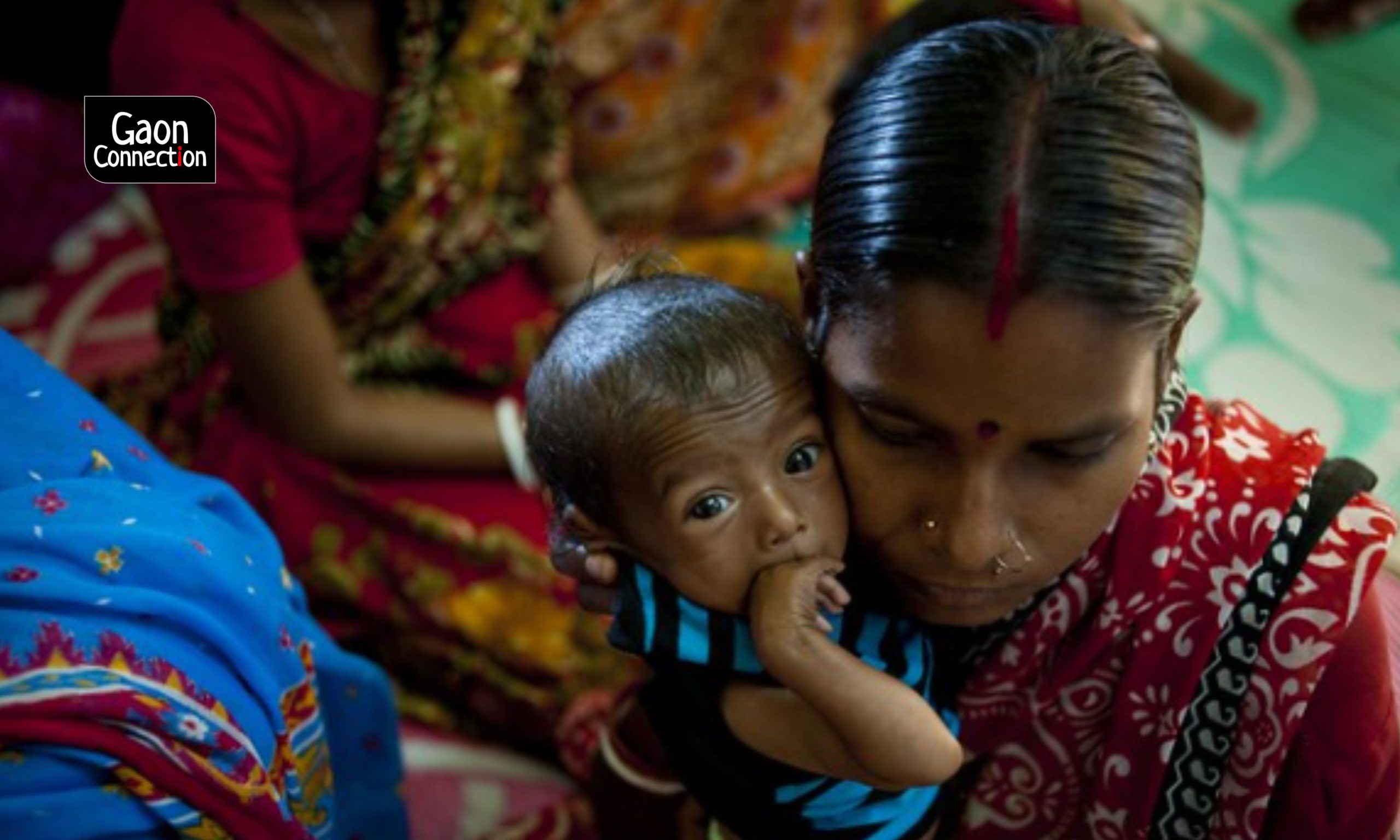
A severely malnourished child and his mother waits to be served food at a Nutrition Rehabilitation Centre in the Purulia district, West Bengal. Photo: Unicef India
Yesterday, on February 3, in a press conference organised by the Right to Food Campaign, an informal network of organisations and individuals, health and nutrition experts unravelled the funds allocated to various nutrition schemes, such as the Integrated Child Development Services (ICDS) and maternity entitlements, under the Union Budget 2021-22.
Budget 2021-22, presented by the finance minister Nirmala Sitharaman in Parliament on February 1, has allocated Rs 2,700 crore towards the nutrition of children and women. This is 27 per cent less than the budget estimates of Rs 3,700 crore on nutrition in the last fiscal year of 2020-21.
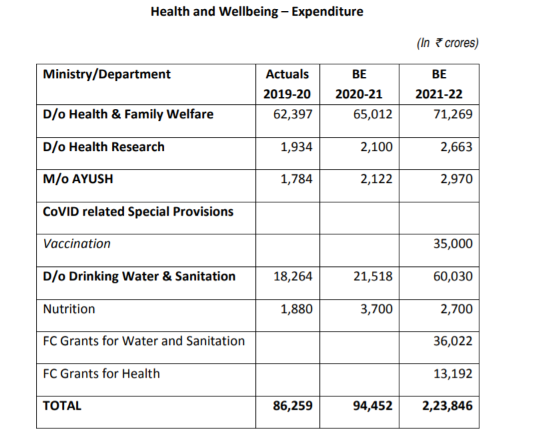
“We are all extremely shocked seeing the funds allocated to nutrition schemes. This is when the WHO [World Health Organization] and UNICEF are predicting a rise in child mortality and malnutrition in our country. And after that this is the response to that, cuts and deductions in the Budget,” said Vandana Prasad, Noida-based public health expert, in the press conference.
Increasing malnutrition among under-5 children and women, quality of services provided to the beneficiaries in anganwadi centres, honorariums of anganwadi workers and helpers, lack of transparency in funds allocation for various schemes under the ICDS were discussed during the press conference held at Indian Women’s Press Corps (IWPC), Delhi.
Watch Facebook Live of the press conference here.
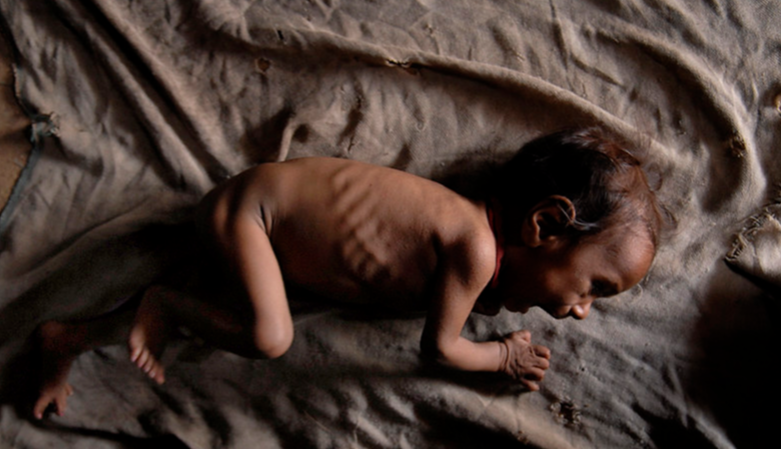
Do under-5 kids get an adequate diet?
Malnutrition is a huge burden in the country. The Comprehensive National Nutrition Survey, 2016-18, shows 35 per cent under-5 kids in India are stunted, 33 per cent under-5 kids are underweight, and 17 per cent are wasted. Overweight, stunting, and wasting, among children and women results from a failure to receive adequate nutrition over a long period.
“Only nine per cent of children get adequate food in our country. Leave alone asking for more, the funds allocated are not even covering the status quo of ICDS,” said Prasad.
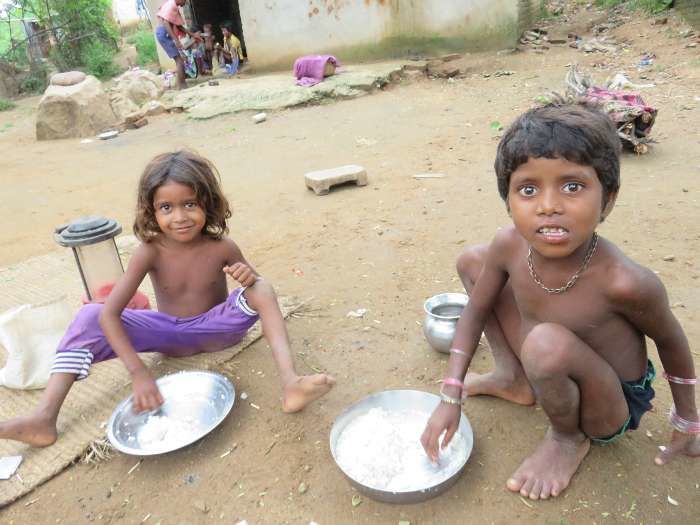
Funds for new programmes not enough
Several schemes under the Union Ministry of Women and Child Development have been re-grouped and renamed, such as Saksham Anganwadi and POSHAN 2.0 for nutrition programmes.
The Budget 2021-22 document shows the combined budget allocated for the Saksham scheme, which includes four programmes: ICDS, Poshan, creches and scheme for adolescent girls, is Rs 20,105 crores, which is even less than Rs 20,532 crores given to ICDS alone in 2020-21.
“If these schemes are not backed by resources, there is no point having new schemes and new names for these programmes,” said Dipa Sinha, assistant professor, Dr BR Ambedkar University, Delhi, who has been associated with the Right To Food Campaign.
“The demand for ICDS alone was twenty-four thousand to twenty-five thousand crores,” she added. But, in the Budget 2021-22, four schemes, including ICDS, have been allocated Rs 20,105 crores.
Meanwhile, the Pradhan Mantri Matru Vandana Yojana, which provides conditional cash transfer to pregnant and lactating women for the first live birth, is now clubbed with other schemes under Samarthya yet the allocation in Budget 2021-22 (Rs 2,522 crores) is similar to the allocation for the scheme alone in 2020-21 (Rs 2,500 crores).
Commenting on the Matru Vandana scheme, Sinha said: “The Budget is not enough to cover beneficiaries for Matru Vandana. The National Food Security Act says at least six thousand rupees should be given to the beneficiaries, but the scheme gives only five thousand rupees. Now, in the Budget 2021, we find it is reduced further.”
Impact on anganwadis
Apart from nutritional outcomes in under-5 kids and women, speakers at the press conference suggested the facilities provided to anganwadi workers would get affected because of the reduced funds for nutrition-related schemes.
“Anganwadi is the only village level platform for all schemes, interventions, and programmes for women and children. Nearly 30 lakh [3 million] anganwadi workers and helpers in the country have not received a single paisa from this Budget” rued Prasad.
The ICDS offers six services: supplementary nutrition, preschool non-formal education, nutrition and health education, immunisation, health checkup and referral services, through 1.36 million functional anganwadi centres spread across all the districts in the country (as of June 2018). However, this service suffered during the lockdown, as anganwadis were shut down in mid-March due to COVID19.
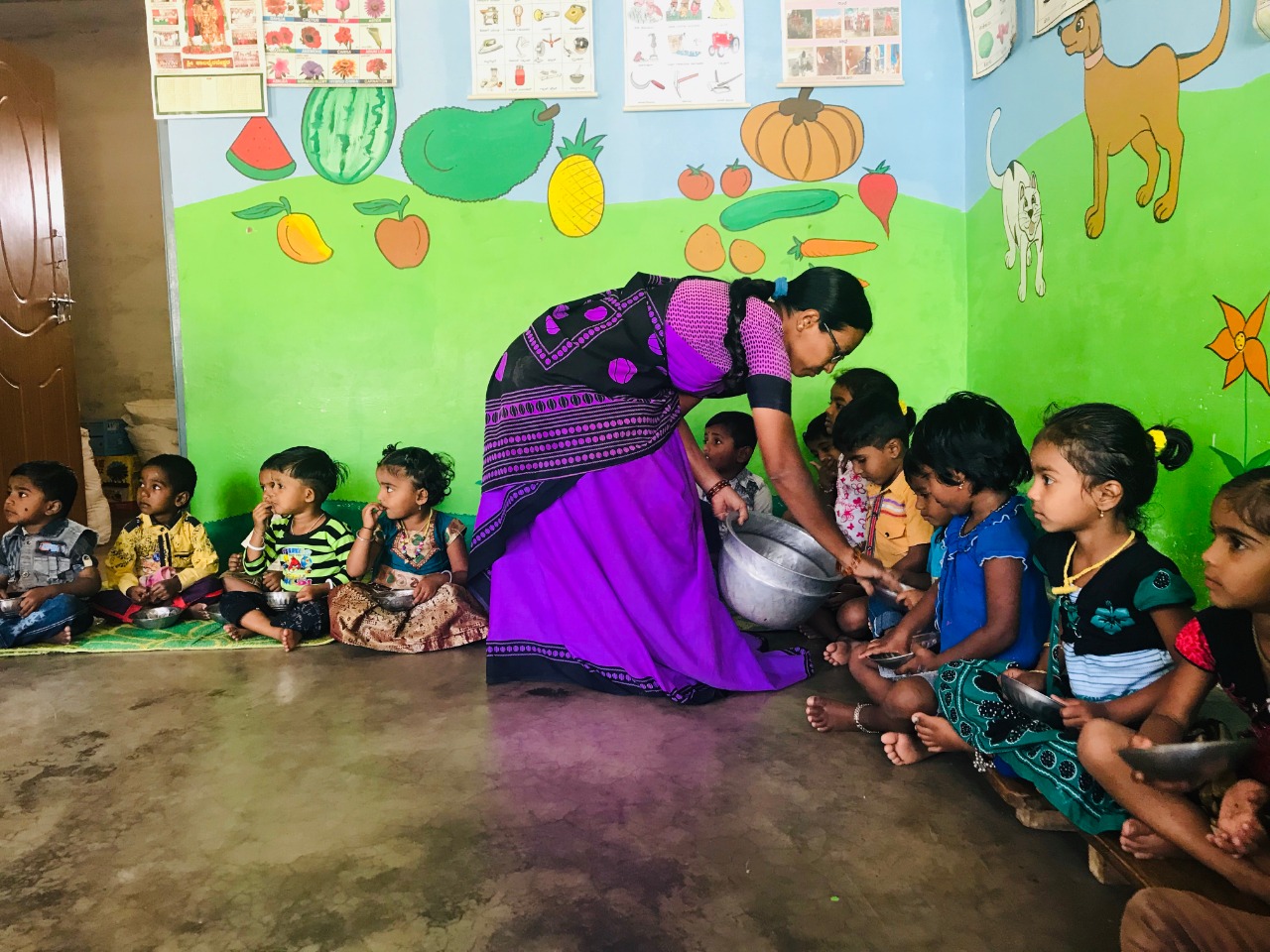
“This year, we are restarting nutrition related programmes, as for one year anganwadis were closed. This year one would have expected a bigger push because of pandemic and years of underfunding,” said Sinha.
The speakers at the press conference also pointed out the funds for various programmes of ICDS, such as the National Creche scheme which provides daycare services and supplementary nutrition to children in the age group of zero to six years of working mothers in the community, are not transparent.
“The Budget for full day support under the creches scheme for working mothers is drastically slashed every year. This year also no special allocation is reflected in the budget,” said Chirashree Ghosh, Delhi FORCES, a grassroots organisation working for the rights of women and young children, in the press conference.
“Women work participation is declining because of the pandemic and absence of childcare is one of the reasons,” added Ghosh, who is also part of the Right to Food network, Delhi.

